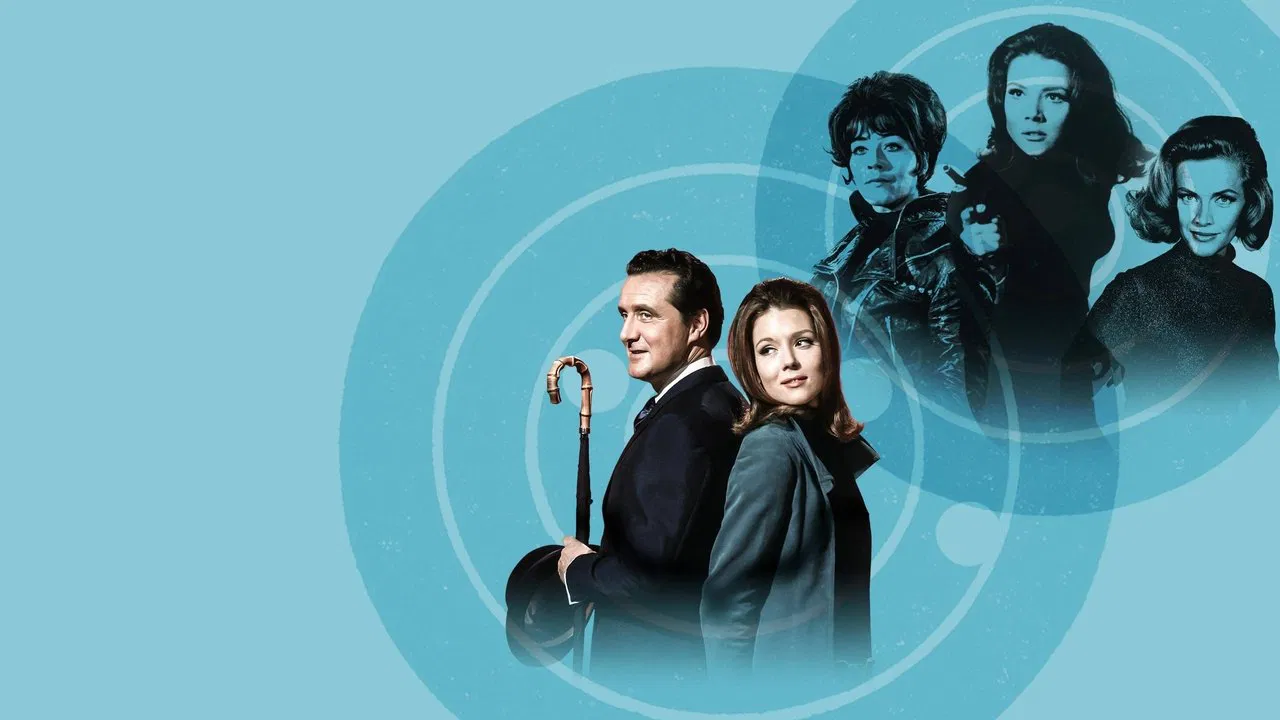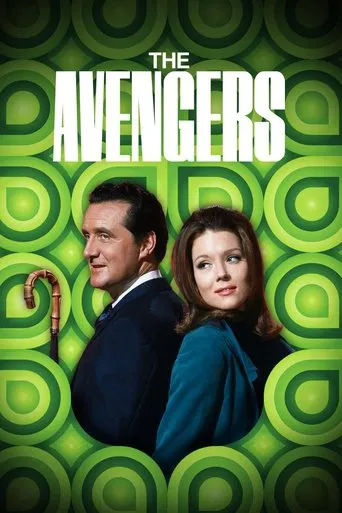

When I was 16 this series meant a lot to me.Like other American fans, I became aware of it when it burst onto American TV in summer 1966. What a revelation it was to someone who'd grown up watching American TV! It was unpredictable: it mixed mystery, adventure, science fiction, and satire in always changing proportions. The mysteries were truly intriguing, the adventures truly exciting, the eerie situations truly frightening, the fantastic explanations truly ingenious, and the jokes truly funny. In later seasons the show formularized its conflicting elements, like every other show. But in the beginning you couldn't guess what might come next.And of course there was the sex and violence. It seems impossible now that there was once a time when there was too little sex or violence on TV, but what there was was dull and stodgy. The American network had omitted the most suggestive episodes, but left in a few lines of dialogue that startled at the time. The climactic fight scenes were much more exciting than those on American shows: dynamically staged and photographed, and with a satirical edge, which was lost in later seasons.The writing was very good too. To us in the States it seemed even better than it was because we hadn't then seen a lot of British TV. The scripts were solidly constructed, tightly packed, and full of clever dialogue. Patrick Macnee has claimed in interviews that "there was no clever dialogue" except what he and Diana Rigg rewrote, but the lines of the supporting characters belie that.The atmosphere of the show was new to me: a dark, bright, sharp, woozy, ordered, but unpredictable world where reality could be rolled like a die, figures of speech could become facts (a killing rain, an underground club), and you couldn't be sure that anybody was what he seemed. If I'd seen Alfred Hitchcock's early films at the time, I would have recognized this as an exaggeration of their milieu, to the verge of parody: those flower sellers and organ grinders seemingly hanging out on street corners but really doing spy business. The world of The Avengers extended beyond them to encompass killer robots and plants from outer space--but only a certain distance beyond. (The failure to observe that distance spoiled many of the later shows.)That atmosphere stayed with me for years. It carried me through dreary jobs by enabling me to imbue mundane surroundings in schools and industrial parks with fantastic and sinister possibilities. Other shows tried to imitate it, but never successfully. How could they, when The Avengers itself had lost it and never recaptured it again?The primary technical device for bringing about this atmosphere was the teaser. The Avengers made an art out of it. A man in a field is rained on, tries to escape, is rained into the ground. Superimpose title: "A Surfeit of H2O." The title is the punchline. A man breaks into a house and opens a door; a lion jumps out at him. Title: "The House That Jack Built." And so on.The puzzle posed by the opener often suggested philosophical or metaphysical possibilities, but they were never followed up on. The solution generally turned out to be slightly science-fictional, and the climax, rather than expanding on the potential implications of the story's premise, was just a comic fight. But it was remarkable in itself that the series could progress from one to the other with such deftness, beginning with a cosmic inversion and steadily narrowing it down to a trivial joke. The heroes were invincible (otherwise the stories would have been too horrifying), inexplicable (those of us who didn't know the show's origins had no idea why they were called Avengers), androgynous (Steed was the fancy dresser, Mrs. Peel did the manhandling), paradoxical (Mrs. Peel was widowed, yet somehow virginal), and timeless. (In subsequent seasons, they were turned into pop icons, but divested of most of the twists that had made them interesting.)What was considered by common consent the best episode of all, "The House That Jack Built," I didn't see originally (it was a choice between that and a screening of "The Music Box" with Laurel and Hardy). When I finally got to see it in syndication, five years later, it was like being taken back in time and watching the series for the first time. I was just as fascinated, just as mystified, just as amazed.I set aside my Wednesday nights especially to watch the series. Apparently not many other people did. But that was always how it was with everything that developed a cult. At the time I seemed to be almost the only one who took an interest in it. Only years afterward would people write about it as if it had been a universally shared generational experience.The following year the news came out that The Avengers would return. And so it did--sort of. But despite assiduous effort I gradually had to accede to an awareness that it was no longer very good. It had been dumbed down for Americans. It wasn't the same. It was gone. And now, looking back on it forty years later, I wonder (and can never know for certain): was it really so good as it seemed to me, in that one happy season of my youth? And can anything ever seem that good again?
... View MoreAlthough not nearly as popular as I assumed it to be at the time, The second series of 'The Avengers' was - for me - a must-see programme.The earlier series starred Honor Blackman and never seemed to quite find its focus, but when Emma Peel appeared; the programme gelled into something quite wonderful.I can think of no other show that has been so quintessentially British. Running through the mid-sixties, it embodied all of the fun, optimism and excitement of that swinging decade. Patrick McNee's John Steed set a benchmark for the modern interpretation of a gentleman. Impeccably dressed, dandily-mannered, genteel, urbane, mature, but still fit and intelligent, an educated man of action yet with a hint of eccentricity vouchsafed by such accessories as a steel bowler-hat and an altimeter in his Bentley. Ofsetting this modern take on tradition came Diana Rigg's Emma Peel. The fully emancipated action-woman 20 years ahead of her time. a Lara Croft who shopped in Beauchamp Place. Younger, lithe, and always ready for action, often turned-out in a figure-hugging leather cat-suit and a slick little Lotus 'Elan' sports car, more Tomboy than débutante.This dynamic duo complimented each other perfectly in a relationship that was never crude or vulgar, that always retained a platonic professionalism despite its lingering hint of romance.They were special government agents of some sort or other, and got into extremely bizarre scrapes. The 'Cybermen' had them contending with robot assassins. Another programme found them dealing with seeds from space that could grow into man-eating plants. Yet another programme entailed assassins able to charge-up like capacitors and electrocute their victims. Then there were domestic cats that could be turned into tigers, fountain pens that injected their victims hearts with poison, a house that was a trap that drove people insane, and so on. Today these themes don't seem quite so far-fetched.'The Avengers' held just the right cocktail of excitement, humour and imagination, buoyed-up by the winning personalities of its stars and their amazing chemistry. It never flagged.Diana Rigg made such an impact that she seemed to define the feminine Avenger, eclipsing Blackman and leaving an act that was impossible for Linda Thorsen - her replacement as the drippy 'Tara King' - to fill. Riggseemed to have been there a lot longer than the 2 years or so that she was.With her departure, the format was a busted flush. It later became a threesome and had a slightly harder edge as 'The New Avengers'. But the moment had passed, the joy and innocence were no more. It was the 1970's.
... View MoreThis rating is specifically for the shows that were made with Diana Riggs. She and only she was the only reason I watched this show. I was about 10 years old, when I first saw The Avengers and I never looked back. Until there was no more Diana Riggs. I was never able to watch the others because she was The Avengers in my opinion. The theme song or music was so powerful and unique. (I hope I don't break any rules here, but if you want to watch start and finish of this show you can watch it on YouTube.)If there was to be a remake I think that Megan Follows or Lauren Graham would do her justice. Even though they are not English.
... View MoreThe best in terms of plot. The best in terms of invention. The best in terms of style. The best in terms of acting. The best in terms of direction. The best in terms of documenting a classic era. The best in terms of showcasing all kinds of brilliant actors in early stages of their careers (Peter Bowles, John Wood, Donald Sutherland...ad infinitum...) The best in term of originality & freshness. Just the very best!
... View More